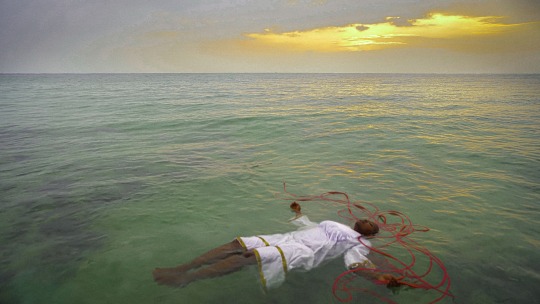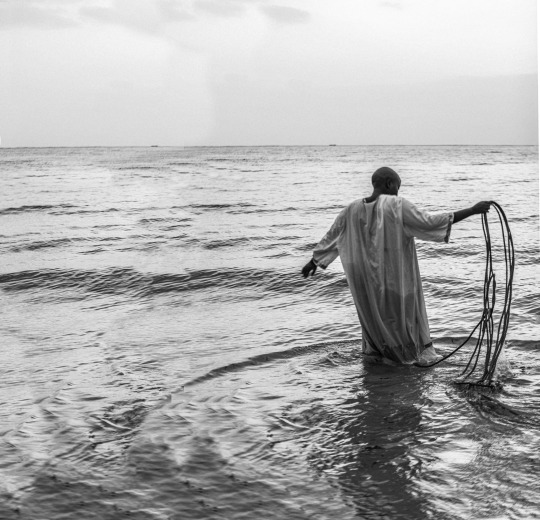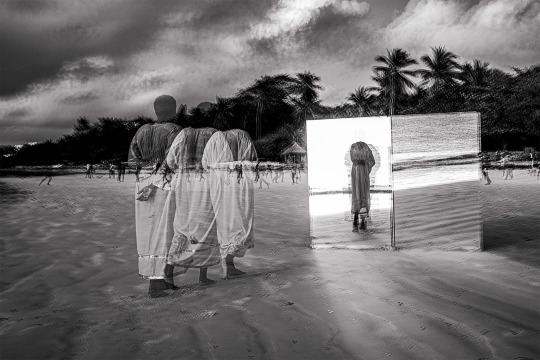#bachelor degree in dubai
Text

BBA in Dubai
The 3-year Bachelor (Hons) in Business Administration is a professional undergraduate course in Business Management which offers knowledge and training in management and leadership skills to prepare the students for managerial roles and entrepreneurship.
0 notes
Text
Explore the pivotal role of business schools in Dubai in shaping the UAE's dynamic economy. From offering sought-after master's degrees in UAE to fostering innovation through bachelor's in engineering, these institutions are vital contributors to the nation's workforce development. Delve into the strategic impact of business education on the UAE's economic landscape, where a fusion of academic excellence and practical skills equips students for leadership roles in diverse sectors.
0 notes
Photo

Information technology (IT) has become an essential part of our daily lives. It has brought significant changes to the way we communicate, work, and conduct business.The importance of studying information technology degrees is increasing in today's digital age. Students need to study information technology to prepare themselves for the future.
0 notes
Text

Our BA degree program in Business and Management provides students with a comprehensive understanding of core business principles and management fundamentals, as well as developing critical thinking, problem-solving, communication, and teamwork skills that are essential for success in the business world.
0 notes
Text

#newcastle institute sharjah#newcastleinstituteuae#bachelor degree#ba hons management#ba management#ncisharjah#ncigulfielts#nciuae#ncigulfsharjah#dubai#education institute sharjah#education sharjah
1 note
·
View note
Text
Margaret Njeri Ngigi (B.1996) is a passionate visual artist, photographer, and filmmaker. Born, raised, and currently living in Kenya, she is currently pursuing her Bachelor’s Degree in Film Production and Directing at the United States International University of Africa. Margaret has been practicing photography for six years in which she has been nominated for awards such as photo London emerging photographer of the year. She has exhibited her work in international art fairs such as Photo Basel and worked with galleries such as AKKA project Dubai and Venice. Women have been, and continue to be the center of most of her projects such as Murky waters and Mke Mwema.
Her environment has always been a source of inspiration for her and by taking images of women, she makes an image of herself and tries to bring these issues affecting women to the limelight. This is very important for her as women all around her continue to be oppressed by the society she lives in, and yet these issues are not talked about. Another topic she holds dear is a mental illness which she addresses in her work, with projects such as wrapped up in my head . While as much as she enjoys creating photographs and films, what drives her is the need to start conversations on issues that affect women and society at large. She is very passionate about feminism and the need to have safe spaces where women are able to hold conversations and also relate with her work and not feel alone with whatever issues they go through.
Read our interview with Sherie on our site!



#black photographers#photography#art#art publication#art publishing#black art#black artists#artists on tumblr#black artists on tumblr#black tumblr#black lives matter#blackismag
5 notes
·
View notes
Text
Gen. Pervez Musharraf, Pakistan’s former president, died at age 79 in Dubai on Sunday after a long illness, according to a statement by the Pakistani military.
Musharraf’s military colleagues in Pakistan often praised him as daring, forthright, and brave—yet the primary legacy he leaves behind will feature none of those adjectives. Pakistan’s 10th president since independence will be remembered instead as a divisive, constitution-shredding military dictator who set Pakistan back decades.
When Musharraf took charge after a military coup in October 1999, Pakistan was not dissimilar from its neighbors China and India—countries with large populations but little economic vitality at the time. China and India, however, soon enjoyed massive growth as their economies opened up to the world and investments poured in and exports flowed out. Pakistan grew too—but not because of any changes in how Musharraf managed the economy. Instead, infusions of cash from the United States to help finance the so-called global war on terrorism bolstered solid (though unspectacular) macroeconomic numbers.
By the end of Musharraf’s tenure in 2008, Pakistan was a regional economic laggard. The country took yet another massive loan from the International Monetary Fund just weeks after he resigned. More importantly, however, insurgencies and violent political crises had engulfed three of Pakistan’s four provinces.
Democratic-minded Pakistanis often blame the United States for bolstering the country’s military dictators, and for good reason. Throughout the three extended periods when generals have run Pakistan—the 1960s, the 1980s, and the 2000s—they did so with vital political and economic support from Washington. That is what helped shore up every military dictator Pakistan has ever had to endure.
But Musharraf’s assistance to U.S. President George W. Bush’s war efforts reached a whole new level and made him something of a celebrity in the United States. In 2006, he became the first foreign head of state to appear on The Daily Show With Jon Stewart. It was a somewhat awkward appearance. Asked how he balanced the wishes of the United States and Pakistan, Musharraf said, “I’ve had to learn the art of tightrope-walking many times, and I think I’ve become quite an expert of that.”
He got a few laughs. But there was nothing funny about the mess he was trying to hide back home as he sought to further secure his grip on power by marketing himself as the sole Pakistani counterterrorism partner whom Americans could count on.
Born in 1943 to a middle-class household that migrated to Pakistan from India just four years later, Musharraf benefited from being in a well-educated and socially prominent family. His father worked for the government and eventually became a diplomat posted to Ankara, Turkey, where Musharraf spent seven years learning Turkish and growing fond of Mustafa Kemal Ataturk, the founding father of a sovereign and secular Turkey. At age 18, Musharraf joined the Pakistan Military Academy, from which he graduated with a bachelor’s degree in 1964.
He saw his first combat in Pakistan’s 1965 war with India, and he was also involved in combat operations in the 1971 war that led to the breakup of Pakistan (and the founding of Bangladesh). Musharraf came to be seen as a star officer and became a member of the elite Special Services Group of commandos in the Pakistan Army. He later taught at the Command and Staff College in Quetta and in the War Wing of the National Defence College.
In 1998, Musharraf was appointed head of the armed forces, only to be fired in October 1999 when he was traveling abroad. The armed forces, never keen to obey even the most benign orders of elected civilian leaders, refused to carry out the decision. In scenes more fitting for a cheap thriller one might buy at an airport bookshop, the Army took control of Karachi’s airport, helped land Musharraf’s plane as he returned from his foreign trip, and conducted a coup. Musharraf then appointed himself the head of yet another military government.
As president, his straight-talking, unvarnished style was welcomed by Pakistanis unaccustomed to that kind of candor from a public official. For Pakistan’s rising urban middle class, he became a patron of music, television, film, and fashion. But for the rest of the country—the vast majority—Musharraf’s rule was a time of violence, diminished control over their own lives, and the absence of democratic representation.
Musharraf’s most memorable reform effort was Local Government Ordinance 2001, which aimed to transfer many local services from higher tiers of government to more local authorities. The idea was to empower ordinary citizens and make the authorities overseeing municipal water, sanitation, and education services more responsive to the people using those services. For the first few years after it was enacted, the ordinance and the new systems it created seemed to be improving those services across the country.
As with so many of Musharraf’s promises, though, there was no follow-through. Musharraf never delivered the necessary fiscal and political freedoms that would have ensured his reforms would last. He deliberately kept the four provincial governments weak and fiscally dependent on the largesse of the federal government. This ended up embittering ethnic minorities and deepening the suspicions of democrats already wary of Musharraf’s intentions. Both at the provincial and the national levels, Pakistan’s democratic institutions remained weak. And in 2006, Musharraf helped dismantle some of his own reforms to prolong his time as president—conceding changes to Local Government Ordinance 2001 as part of a deal with “elected” civilians who were actually installed to do his bidding. Despite Musharraf’s many protestations to the contrary, he never really favored democracy.
Nor did he respect the rights and multiple identities of his diverse citizenry. In Balochistan—the sparsely populated, poor, yet mineral-rich province that is now the site of some of China’s key investments in Pakistan’s infrastructure—Musharraf laid the foundation for a raging separatist insurgency. He responded to long-standing Baloch demands for greater access to the natural resources extracted from the province with contemptuous rejections. Key political leaders who articulated those demands were branded as traitors.
The tipping point probably came in 2006 when Nawab Akbar Bugti, a onetime government minister in Islamabad and former chief minister of the province, was killed in a standoff with the military. Bugti’s family accused Musharraf of having him assassinated. A 2016 court judgment cleared Musharraf of the charge, but many continue to believe that he was responsible. Even those with a tendency to align themselves with Musharraf blamed him for plunging the entire province into violence.
Meanwhile, the cost of fighting al Qaeda was not borne by Musharraf but by the thousands of Pakistani citizens, police officers, spies, and soldiers who were killed in reprisal attacks that metastasized into a full-blown terrorist insurgency in the north and northwest of the country. Bush understandably praised Musharraf for helping to fight his war, calling Musharraf “a leader with great courage and vision.” But for Pakistan, the fruits of that relationship were ruinous. From the home district of Malala Yousafzai in Pakistan’s northwest to the tribal areas bordering Afghanistan, full-scale military operations displaced and dislocated millions of Pakistani citizens throughout the decade that followed the Musharraf era—operations that were a response to restive and violent conditions that Musharraf, in trying to please Washington, had fostered or created.
Musharraf and his many supporters often cite the absence of better options—suggesting it would have been impossible to support U.S. counterterrorism campaigns in the aftermath of the 9/11 attacks without fueling a terrorist insurgency. And, yes, the challenge of being squeezed between U.S. pressure to conduct a war on terrorism and the domestic complexities of managing that war without igniting internal conflicts and tensions would have been difficult for any leader. Still, Pakistan never had a chance to debate or contemplate how to find a proper balance—Musharraf decided for the whole country.
In the nearly decade and a half between his resignation in 2008 and his death, Musharraf showed little capacity for reflection or remorse. When he did show glimpses of regret, they were transparently self-serving. At the launch of his own political party in October 2010, when questioned about what he did to counter corruption during his time in power, he apologized for having made a 2007 deal to enable former Prime Minister Benazir Bhutto to return to Pakistan. (She was assassinated on his watch as president.) Later that year, during an interview with Indian television, when confronted about how he left Pakistan in political and financial ruin, he expressed regret at having given up the position of chief of army staff too soon. In an interview in December 2013, as momentum was building for a Pakistani Supreme Court case in which he would have been tried for treason, Musharraf said, “Whatever I did, I did it for the country. It could be wrong, but there was no bad intention in it. Even then, if someone thinks that I have committed a mistake, I seek forgiveness for it.”
Those who wonder about the sincerity of his halting contrition need look no further than his actions toward the end of 2007. Growing increasingly weary of the upsurge in political, legal, and social challenges to his rule that had arisen throughout 2006, he tried to fire the country’s chief justice in March 2007. That decision backfired in July of that year when a 13-judge panel from the Supreme Court reinstated the justice. In response, Musharraf arranged to be elected as president by parliament in October. When that gambit backfired—with almost all opposition members either abstaining or resigning from parliament to protest the behavior of the Musharraf regime—he suspended the constitution altogether, declaring a state of emergency. In keeping with the global post-9/11 tradition of using terrorism as a basis for violating laws, he justified the emergency declaration on the basis of the “visible ascendancy in the activities of extremists and incidents of terrorist attacks.”
It’s not only his actions as the leader of the country after 1999 that will leave his legacy in tatters. Perhaps the most egregious violation of his oath as a soldier was not the coup he conducted in 1999, or the sham election he held in 2002, or the judges he tried to fire in 2007, or the emergency he declared in 2007. Rather, it was the Kargil War of 1999—a military entanglement that his supporters laud for its tactical robustness, yet whose strategic cost Pakistan continues to bear to this day.
Contingency plans for taking vulnerable parts of Indian-occupied Kashmir had been part of Pakistani military thinking for decades. In the late 1990s, several senior officers had sought to implement those plans, yet calmer heads had always prevailed, including the army chief who preceded Musharraf, a thoughtful and widely respected general named Jehangir Karamat. But in 1998, then-Prime Minister Nawaz Sharif fell out with Karamat and fast-tracked Musharraf’s appointment as chief of army staff. Among Musharraf’s first acts as military boss was to greenlight the covert infiltration that sparked the Kargil War.
The war was supposed to liberate Kashmir from Indian occupation. Instead, hundreds of Pakistani soldiers were killed, and after an initial shock, India was able to push back and regain the territory it had held. Back home, Pakistan’s elected civilian leadership claimed to have been kept in the dark about the Kargil misadventure—and the resulting bitterness is what eventually led to Musharraf’s coup. At one point, U.S. President Bill Clinton was pulled into the crossfire, both between Musharraf and Sharif and between India and Pakistan. Bitterness and disappointment from Kargil in both Washington (for the dangerous escalation the intervention represented) and Pakistan (for the United States having refused to support Pakistan) led to a strategic falling-out between the United States and Pakistan. Those tensions never fully disappeared.
Recent political upheaval in Pakistan is essentially part of the toxicity that began with the disastrous Kargil misadventure. When disagreements between Pakistani politicians and generals boil over, the United States is the baton they use to beat each other up with. Unpredictability in Pakistani governance now seems like a given—but it wasn’t always this way. Gen. Pervez Musharraf was the gardener who planted and harvested those seeds.
To his credit perhaps, despite all his failings, Musharraf remained to the end a relatable figure for the vast middle class of Pakistan. Unlike so many other Pakistani leaders, including military dictators, his family seemed immune to the voracious appetite for money and power such people tend to have. Neither of his two children is a public figure, and neither stands accused of having benefited from the long period when their father enjoyed unlimited power in Pakistan. Previous dictators have left behind multiple generations of very wealthy, politically active offspring.
Musharraf, who had been living in self-imposed exile in Dubai since 2016, leaves behind an empty home in Islamabad and a few apartments in the Middle East and London. All empty. Just like his contrition, and his promises of uniting and reforming the nation.
3 notes
·
View notes
Text
Хочу наладить свою жизнь:
- Выбраться из депрессии (раз и навсегда, научиться не впадать в депрессию)
- Бросить курить (бля, я курю пока пишу этот пост)
- Похудеть (интуитивное питание + спорт + вода), но скорее to be healthy and fitted
- develope good habits
- become a full time artist (I'm thinking about launching a Kickstarter campaign, but don't have idea where to start and will i be able to get sponsorship and backers)
- running social media art blog
- solve all of my health issues (go to dentist, dermatologist, endocrinologist, psychiatrist, psychologist etc)
- get bachelor degree on art(most probably theory and history of art at худ. Академия Репина, заочно, it will take plenty of time, i gotta get tutors to prepare for exams, but I'll probably apply in 2024, hopefully)
Хочу просто расслабиться и do my best as an artist. Очень нравится идея икигай, где ты просто отдаешь себя какому-то делу. Хочу без давления отдавать себя искусству.
- get socialized, make a lot of friends, get to the art community in Dubai
- find a partner to love, to be loved and just to be happy
Но пока моя жизнь сплошной бардак, как и этот список 🤦
3 notes
·
View notes
Text
Looking to enhance your creativity and design skills? Study graphic design courses in Dubai at the University of Wollongong in Dubai (UOWD). With a particular focus on modern design processes and creative technologies, UOWD offers an incredible opportunity for aspiring designers to succeed. Begin your journey to a successful career in graphic design today!
Visit: https://www.uowdubai.ac.ae/degrees/bachelors/media/bachelor-communication-media-visual-communication-design

0 notes
Text
4 Key Differences Between BBA and ACCA: Explained
#BBA Degree college in abu dhabi#BBA in Ajman#BBA in Abu Dhabi#Executive Bachelor Program in Ajman#BBA in Sharjah#BBA Degree in Abu Dhabi#BBA Degree in uae#BBA in UAE#bachelor degree in Sharjah#BBA in Dubai#bachelor degree in Ajman#Bachelor Degree in Abu Dhabi#Executive Bachelor Program in Abu Dhabi#Executive Bachelor Program in Dubai#Bachelor Degree in Dubai#bachelor degree in UAE
0 notes
Text
What is the Process of Obtaining a Real Estate License in Dubai?

Dubai, a bustling metropolis known for its iconic skyline and thriving Dubai real estate market offers promising opportunities for those looking to become licensed real estate agents. However, navigating the process to obtain your real estate license in this bustling metropolis can be complex. That’s where WESETUPBUSINESS a trusted business setup company in Dubai steps in to guide you through the journey.
Step 1: Apply for A Residency Visa
Before you embark on your journey to becoming a real estate agent in Dubai, you’ll need to secure a valid residency visa and Emirates ID. Keep in mind that Dubai follows a comprehensive legislative framework, especially when it comes to immigration laws, including work permits and visas. This visa will grant you the legal right to reside and work in the city.
Step 2: Complete Certified Training for Real Estate Brokers
Once you’ve obtained your residency visa, the next crucial step is to ensure you possess the necessary knowledge and skills to excel in the real estate industry. The Dubai Real Estate Institute (DREI) is the regulatory body responsible for providing aspiring brokers with essential training and certification. This training equips you with the expertise needed to navigate the local real estate market effectively.
Step 3: Take the RERA Exam
Following successful completion of the 4-day DREI training, your next challenge is the Real Estate Regulatory Agency (RERA) Exam. This written examination assesses your understanding of real estate regulations and practices in Dubai. The cost of taking the exam is 3,200 AED (approximately 872 USD) for individuals with a bachelor’s degree from a recognized university. If you don’t hold a bachelor’s degree, you can still take the test, but the fee increases to 6,300 AED (about 1,715 USD).
Step 4: Obtain Your RERA License
Upon successfully passing the RERA exam, you’ll be eligible to obtain your real estate development company license. This license is your ticket to working as a licensed real estate agent in Dubai. It’s the culmination of your hard work and dedication to mastering the intricacies of the real estate industry in this vibrant city.
Additional Tips:
Stay Informed: The real estate market in Dubai is dynamic and constantly evolving. It’s essential to stay updated on market trends, property regulations, and legal changes to excel in your career.
Networking: Building a network of connections within the industry can open doors to opportunities and valuable insights. Attend industry events, join real estate associations, and connect with experienced professionals.
Continuous Learning: Consider ongoing education and certifications to enhance your expertise and credibility as a real estate agent.
In conclusion, obtaining a real estate license in Dubai is a well-defined process that involves securing a residency visa, completing certified training, passing the RERA exam, and obtaining your license. It’s a rewarding journey that can lead to a successful career in the vibrant and lucrative real estate market of Dubai.
Ready to embark on this exciting career path? Get started on your real estate journey in Dubai with WESETUPBUSINESS and unlock a world of possibilities in this thriving market.
0 notes
Text

Within the thriving education sector of the UAE, a world of possibilities awaits international students. From diverse courses in engineering and business to healthcare and technology, the UAE's dynamic academic landscape caters to a broad spectrum of interests. Let's embark on this educational journey and uncover what makes the UAE an appealing destination for learners worldwide.
Visit: https://aurak.ac.ae/undergraduate-degrees/engineering/bachelor-of-science-in-civil-and-infrastructure-engineering
#architecture courses in the UAE#artificial intelligence courses Dubai#Bachelor of Civil Engineering degree
0 notes
Text
IT DEGREE IN DUBAI
Students need to study information technology to prepare themselves for the future. The Bachelor of Information Technology degree program at the University of Wollongong in Dubai (UOWD) is designed to provide students with a solid foundation in computer science, information technology, and related fields.
0 notes
Text

Our bachelor's degree in accounting and finance can help you reach your full potential in Dubai. You will gain a comprehensive understanding of financial reporting, auditing, taxation, and analysis via our BSc in Accounting program in Dubai. The BSc in Accounting and Finance degree in Dubai will equip you with the skills necessary for success, whether your career goals are to become a certified public accountant, financial analyst, or investment banker. Enroll now and start your journey towards a rewarding finance profession in the UAE.
#accounting#bachelor's degree#bsc#finance courses#accounting course#cromwell uk#buckinghamshire new university#UAE#Dubai
1 note
·
View note
Text
Account Manager Job Description
The Account Manager oversees client relationships, ensuring their satisfaction and the successful execution of their projects. The ideal candidate will be a proactive, detail-oriented professional with excellent communication and organizational abilities. This role requires close collaboration with clients to grasp their needs, create customized solutions, and manage project implementation to meet client goals.

This Account Manager job description is designed to be effective for posting on online job boards or career pages.
Job brief
We are looking for an Account Manager to be responsible and accountable for the smooth running of our computer systems within the limits of requirements, specifications, costs and timelines. You will supervise the implementation and maintenance of our company’s computing needs.
The successful candidate will have improved skills, a proven professional experience and a detailed knowledge of industry’s best practice processes.
Qualifications
Education: Bachelor’s degree in Business Administration, Marketing, or a related field, or equivalent work experience.
Experience: Demonstrated experience as an Account Manager or in a similar role, ideally within [industry or field]. Proven ability to manage multiple client accounts concurrently.
Skills:
Exceptional communication and interpersonal skills.
Strong organizational and time-management capabilities.
Proficiency in data analysis and decision-making.
Competence in CRM software and Microsoft Office Suite.
Skilled in negotiation and problem-solving.
Attributes:
Detail-oriented and proactive.
Capable of working effectively under pressure.
Strong focus on customer service.
United States:
Average Salary: $60,000 – $90,000 per year
Senior Account Manager: $90,000 – $120,000+
Bonuses and commissions are often part of the package, which can significantly increase the total compensation.
Canada:
Average Salary: CAD 55,000 – CAD 80,000 per year
Senior Account Manager: CAD 80,000 – CAD 110,000+
Additional benefits may include commissions, healthcare, and pension plans.
Australia:
Average Salary: AUD 70,000 – AUD 100,000 per year
Senior Account Manager: AUD 100,000 – AUD 130,000+
Bonus packages and perks like health insurance are typical.
Germany:
Average Salary: €45,000 – €70,000 per year
Senior Account Manager: €70,000 – €90,000+
United Arab Emirates (Dubai):
Average Salary: AED 180,000 – AED 300,000 per year
Senior Account Manager: AED 300,000 – AED 450,000+
CLICK ON : https://inetfreak.com/account-manager-job-description-the-account-manager/
0 notes